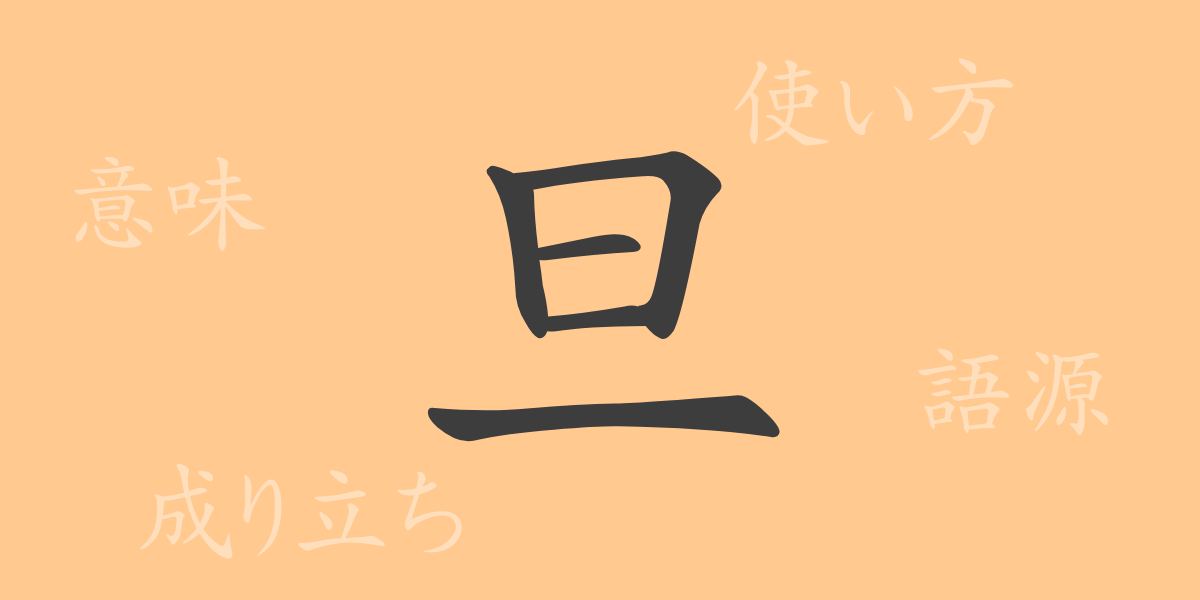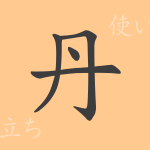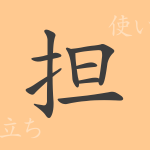Kanji characters, with their profound historical and symbolic meanings, paint a vivid picture of a nation’s culture and language. In this article, we focus on the common Japanese kanji ‘旦’ (タン) (tan), exploring its origins, meanings, usage, and associated idioms and phrases. Join us on a journey into the depths of the Japanese language through this singular character.
Origins of ‘旦’ (タン) (tan)
The kanji ‘旦’ originated from ancient China as a pictograph depicting the sunrise over the horizon. Traces of its earliest form can be seen in oracle bone script, where it symbolized daybreak—one of the fundamental characters representing the start of a day. Over time, its form evolved to the present ‘旦’, embodying the notion of a new day’s commencement, and has been used in various phrases and expressions.
Meaning and Usage of ‘旦’ (タン) (tan)
The character ‘旦’ carries meanings such as ‘sunrise’, ‘dawn’, and ‘the beginning of a period’. It is also metaphorically used to denote ‘a day’ or ‘a specific moment’. Commonly, it finds use in daily conversation to specify times of day, playing a significant role in Japanese expressions.
Readings, Stroke Count, and Radical of ‘旦’ (タン) (tan)
Understanding the basic readings, stroke count, and radical of ‘旦’ is essential:
- Readings: On’yomi ‘タン’ (Tan), Kun’yomi ‘あきらか’ (akiraka), ‘あした’ (ashita)
- Stroke Count: ‘旦’ consists of 5 strokes.
- Radical: The radical of this kanji is ‘日’ (にち) (nichi), which means ‘sun’.
Idioms and Phrases Using ‘旦’ (タン) (tan) and Their Meanings
There are many idioms and phrases that incorporate ‘旦’. Here are a few examples:
- 旦夕 (たんせき) (tanseki): Meaning morning and evening, signifying the beginning and end of the day.
- 一旦 (いったん) (ittan): Temporarily or for the moment, often used to denote a pause or interim.
- 旦那 (だんな) (danna): Originally a term of respect for a house or shop owner, now commonly used to refer to a husband.
Summary on ‘旦’ (タン) (tan)
The kanji ‘旦’, with its simple appearance, plays a rich and varied role in the Japanese language. Symbolizing the sunrise, it marks new beginnings and the rhythm of daily life. The term ‘旦那’ (danna) reflects unique aspects of Japanese culture and customs. This exploration hopes to have deepened your appreciation of the meanings and contexts embedded in each kanji character, highlighting the depth and allure of the Japanese language.

























